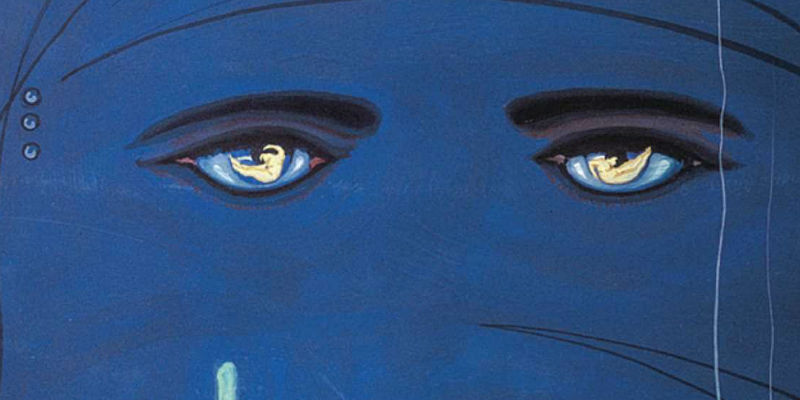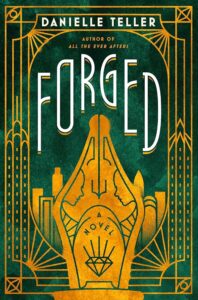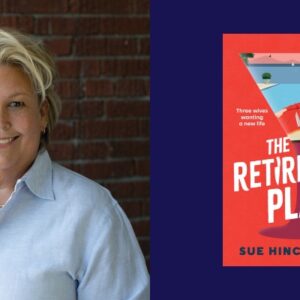I confess that I wasn’t a fan of The Great Gatsby the first time I read it, which, surprisingly for many, wasn’t in school. I grew up in Canada, where American novels aren’t often taught, and my English class at university started with Chaucer and ended somewhere around Romanticism. When I moved to the US, I went about correcting my appalling lack of knowledge of American literature by systematically reading through the classics. Moby Dick proved too much for me, but I zipped through mercifully shorter and more eventful books, including the very slim The Great Gatsby.
Gatsby seemed silly to me. A poor farm kid sails on a millionaire’s yacht learning to be posh, experiences love at first sight, gets stupid rich through criminal enterprises with a cartoonish Shylock character, stalks his ex, gets blamed when his love interest accidentally runs over her husband’s mistress, is hunted down and shot by the dead woman’s hapless husband. Sorry for the spoilers.
I did appreciate the pretty, pretty words, but at the time, they weren’t enough to make up for what I considered a lame plot. (I read more recently that Fitzgerald resented criticisms of the novel’s plot as implausible as he had never intended for the story to be realistic.) I might have appreciated the book more if an enthusiastic professor had lectured to me about the American Dream, the decline of morality, the destructive nature of greed, and the elusive nature of happiness. As it was, I shelved the novel with a shrug and moved on to The Sun Also Rises.
Many years later, I heard the story of a Gilded Age female con artist named Cassie Chadwick on a history podcast, and Jay Gatsby floated up from the murky depths of my memory. Chadwick, like Gatsby, was born to poor farmers, and aspired to better her position in life; and like Gastby, turned to crime to amass her fortune. Chadwick’s life before she turned to bank fraud is not well documented, but from what I gathered, she was a despicable person who preyed on vulnerable people and felt no remorse for ruining their lives. Gatsby, on the other hand, is a romantic dreamer who is motivated by love. I thought that a Chadwick/Gatsby mashup would make an interesting story, and this brought me back to Fitzgerald’s novel for a closer reading.
What struck me first in carefully rereading the novel is that while the broad brushstrokes of the plot are unsubtle, the writing itself is understated. I had blown past moments like Nick Carraway imagining a bus conductor’s lover or standing beside the bed of an underwear clad man. I had also missed some of the references to Jay Gatsby’s criminality and con artistry, like this passage in which Tom tells Gatsby that he knows about his illegal activities:
“Plenty of gas,” said Tom boisterously. He looked at the gauge. “And if it runs out I can stop at a drug-store. You can buy anything at a drug-store nowadays.”
A pause followed this apparently pointless remark. Daisy looked at Tom frowning, and an indefinable expression, at once definitely unfamiliar and vaguely recognizable, as if I had only heard it described in words, passed over Gatsby’s face.
The con artist and criminal elements of Gatsby are often downplayed or romanticised, but approaching the text from this angle, I saw the character in a new light. His hustling begins long before he meets Daisy and extends well beyond pretending that his ill-gotten gains are legitimate. As a youth, he is ashamed of his humble beginnings and doesn’t accept his parents as his own. He is described as “extravagantly ambitious” and has feverish dreams:
“But his heart was in a constant, turbulent riot. The most grotesque and fantastic conceits haunted him in his bed at night. A universe of ineffable gaudiness spun itself out in his brain while the clock ticked on the washstand and the moon soaked with wet light his tangled clothes upon the floor.”
This is a youth who is fixated on finding his way to wealth into the upper echelons of society, and he is impatient to get there. Nick Carraway goes so far as to call him a son of God who is acting “in service of a vast, vulgar and meretricious beauty.” In pursuit of his “future glory” he enrolls in college but can’t stand the school’s “ferocious indifference to the drums of his destiny” and having to do menial work to pay his way. Luckily for him, a mining mogul sails into his life and teaches him how to pass himself off as a member of high society under a patrician new name, Jay Gatsby.
What stuck in my mind from my first reading was Nick Carraway admiring, even loving Gatsby. I didn’t remember him being aware of Gatsby’s self-absorption and mistreatment of others. I also came away from that original reading thinking that Gatsby’s illegal activities are limited to distributing moonshine, but on my second reading, I noted the “many young Englishmen” at Gatsby’s parties who are evidently trying to sell something to the guests and are “agonizingly aware of easy money in the vicinity,” which sounds a lot like organized fraud. Then there’s the phone call for Gatsby that Nick intercepts late in the novel indicating that Gatsby is involved in bond theft or forgery:
“Young Parke’s in trouble,” he said rapidly. “They picked him up when he handed the bonds over the counter. They got a circular from New York giving ’em the numbers just five minutes before.”
Jay Gatsby is as much a con artist as the real life Cassie Chadwick, I realized. He seeks cheat codes for acquiring wealth and takes on a false persona at a young age (and, notably, before he meets Daisy), and he displays many of the narcissistic and psychopathic features associated with con artists, including glib charm, grandiosity, need for admiration, impulsivity, egotism, manipulation, and of course, a willingness to lie. One could, in fact, view The Great Gatsby as a story of a psychopathic con artist who receives a narcissistic injury (rejection by Daisy) and becomes obsessed with trying to repair that injury…but that would be boring. A self-made millionaire who will do anything to reclaim the love he has lost and achieve his romantic ideals, now that’s a story for the ages. Even if some of the plot points are a bit janky.
***


















